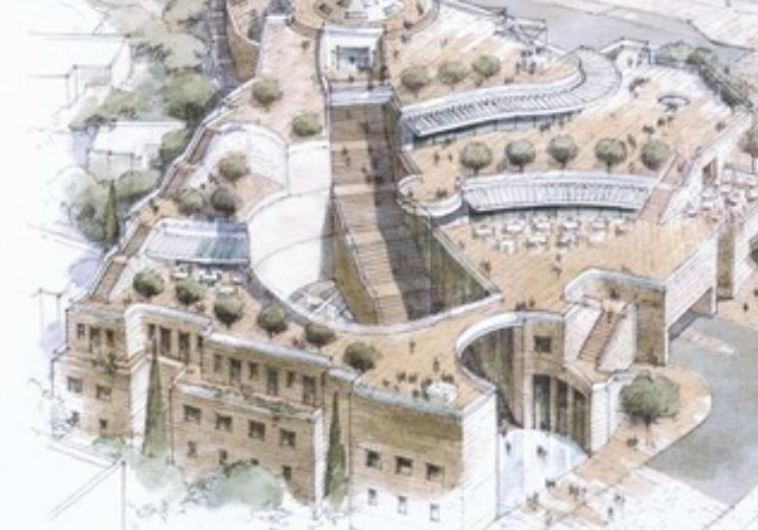Government approves, but orders scaled-down version of, contested Jerusalem Kedem Center
The Elad foundation contends that the compound would be instrumental in drawing tourists while the opposing NGOs denounced the center as destructive.
 An artist's rendering of the Kedem Center
An artist's rendering of the Kedem Center